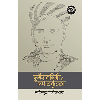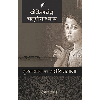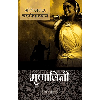| Title : |
Chandra Shekhar |
| Material Type: |
printed text |
| Authors: |
Bankim Chandra Chattopadhyay, Author |
| Publication Date: |
2017 |
| Pagination: |
199 p. |
| Size: |
Kindle Edition |
| General note: |
Format : Kindle eBook |
| Languages : |
Hindi (hin) |
| Abstract: |
Preface
The 27th June of the year 1838 is a red-letter day in the history of Bengal. It shall ever be remembered, with pride and glory, by the millions of the Bengali-speaking race, as the birthday of that master-mind—that great literary genius—the late Rai Bahadur Bankim Chandra Chatterjee, C.I.E., the immortal author of the well-known novel, Chandra Shekhar. The year 1874 will also not be forgotten, and will, by all means, leave an imperishable landmark in the annals of the Bengali literature; for, It was in that year that Chandra Shekhar with all its literary beauty and elegance—rich thoughts and sentiments—and above all, with its masterly finished pictures and characters, was contributed to the world's treasure of literature by the great man whose stamp of genius it bears.
It is neither my desire nor is it possible to attempt here to analyse the various remarkable factors and ingredients which constituted the wonderful intellectual stamina and the striking personality of the renowned Bengali novelist, and which were, more than anything else, responsible for the brilliant fulfilment of the noble and epoch-making mission for which he lived and died to the glory of his country. It is also not within my scope or aim to furnish my readers with an analytical criticism of the literary merits of the great work, I have translated, and which manifests in a striking manner the admirable intellectual faculties and literary excellence with which its distinguished author was endowed.
To assign to Bankim Chandra his right place in the history of the Bengali literature—to give an accurate idea of the exact character of an intellect so complex and acute—and to unmistakably trace out the prospective and retrospecticve effects of its influence on the Bengali literature—is not an easy task. Suffice it to say, that Bankim Chandra renovated and improved the Bengali language and, in one word, so remodelled it as to bring it in contact with the modern Bengali life.
As regards Chandra Shekhar, I have already said that my readers should not look for an accurate and elaborate exposition of the beauty and grandeur of that great work of art, in this short prefatory note. Besides, if I would attempt at a detailed criticism of the whole work, here, it would deprive, at least, a particular section of my probable readers of that enjoyment which their unfamiliarity with the plot and the characters of the story will afford to them in the first reading. I shall, therefore, simply say that Chandra Shekhar is, perhaps, the finest creation of the great writer and is an enduring monument of his literary fame. It bears emphatic and convincing testimony to the internal worth of its author and will help future historians to pronounce a just verdict on his literary gifts and acquirements.
It may be interesting to know that the historical incidents, narrated in the novel, have been taken from the Seir Mutaqherin, an old Persian history of considerable importance. This valuable work has been translated into English, and as it is a faithful and interesting record of the events which took place in India between the years 1718 and 1783, it certainly deserves to be mentioned here.
I had no mind to append a preface to this work. But, as it is, what I may, perhaps, rightly call, a necessary evil, I cannot dispense with it altogether. Besides, I want to say that, although translation is a thankless task, in spite of the arduous labour it entails on the translator and the useful purpose it serves by disseminating knowledge, I have translated Chandra Shekhar to pay a tribute of respect to the illustrious memory of the great writer and to popularise among the English-speaking races one of his greatest works. I fear, nothing has yet been done or so done as to give to those who are not familiar with the Bengali literature, an accurate idea of the literary genius of India's Sir Walter Scott, and I shall consider my labour amply rewarded if my translation will... (Product Description) |
Chandra Shekhar [printed text] / Bankim Chandra Chattopadhyay, Author . - 2017 . - 199 p. ; Kindle Edition. Format : Kindle eBook Languages : Hindi ( hin)
| Abstract: |
Preface
The 27th June of the year 1838 is a red-letter day in the history of Bengal. It shall ever be remembered, with pride and glory, by the millions of the Bengali-speaking race, as the birthday of that master-mind—that great literary genius—the late Rai Bahadur Bankim Chandra Chatterjee, C.I.E., the immortal author of the well-known novel, Chandra Shekhar. The year 1874 will also not be forgotten, and will, by all means, leave an imperishable landmark in the annals of the Bengali literature; for, It was in that year that Chandra Shekhar with all its literary beauty and elegance—rich thoughts and sentiments—and above all, with its masterly finished pictures and characters, was contributed to the world's treasure of literature by the great man whose stamp of genius it bears.
It is neither my desire nor is it possible to attempt here to analyse the various remarkable factors and ingredients which constituted the wonderful intellectual stamina and the striking personality of the renowned Bengali novelist, and which were, more than anything else, responsible for the brilliant fulfilment of the noble and epoch-making mission for which he lived and died to the glory of his country. It is also not within my scope or aim to furnish my readers with an analytical criticism of the literary merits of the great work, I have translated, and which manifests in a striking manner the admirable intellectual faculties and literary excellence with which its distinguished author was endowed.
To assign to Bankim Chandra his right place in the history of the Bengali literature—to give an accurate idea of the exact character of an intellect so complex and acute—and to unmistakably trace out the prospective and retrospecticve effects of its influence on the Bengali literature—is not an easy task. Suffice it to say, that Bankim Chandra renovated and improved the Bengali language and, in one word, so remodelled it as to bring it in contact with the modern Bengali life.
As regards Chandra Shekhar, I have already said that my readers should not look for an accurate and elaborate exposition of the beauty and grandeur of that great work of art, in this short prefatory note. Besides, if I would attempt at a detailed criticism of the whole work, here, it would deprive, at least, a particular section of my probable readers of that enjoyment which their unfamiliarity with the plot and the characters of the story will afford to them in the first reading. I shall, therefore, simply say that Chandra Shekhar is, perhaps, the finest creation of the great writer and is an enduring monument of his literary fame. It bears emphatic and convincing testimony to the internal worth of its author and will help future historians to pronounce a just verdict on his literary gifts and acquirements.
It may be interesting to know that the historical incidents, narrated in the novel, have been taken from the Seir Mutaqherin, an old Persian history of considerable importance. This valuable work has been translated into English, and as it is a faithful and interesting record of the events which took place in India between the years 1718 and 1783, it certainly deserves to be mentioned here.
I had no mind to append a preface to this work. But, as it is, what I may, perhaps, rightly call, a necessary evil, I cannot dispense with it altogether. Besides, I want to say that, although translation is a thankless task, in spite of the arduous labour it entails on the translator and the useful purpose it serves by disseminating knowledge, I have translated Chandra Shekhar to pay a tribute of respect to the illustrious memory of the great writer and to popularise among the English-speaking races one of his greatest works. I fear, nothing has yet been done or so done as to give to those who are not familiar with the Bengali literature, an accurate idea of the literary genius of India's Sir Walter Scott, and I shall consider my labour amply rewarded if my translation will... (Product Description) |
|  |


 Refine your search
Refine your search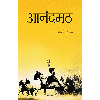
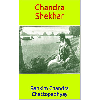
Durgeshnandini Aur Kapalkundla (?????????????? ?? ??????????) (Hindi) / Bankim Chandra Chattopadhyay

